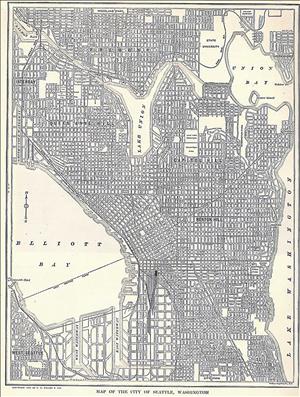In 1929, the Renton Hill Community Club reorganizes to exclude racial minorities from the neighborhood. The neighborhood is an exclusive residential district in the vicinity of 18th Avenue and Madison Street. The community club is a reaction to the presence of an African American population to the east, an Asian population to the south, and the downtown encroaching from the west. Together with the Capitol Hill Community Club, the Renton Hill club circulates a covenant restricting rental or sale of property to whites.
The Renton Hill Improvement Club operated from 1901 to 1918 and it dissolved when most of the founding members moved away.
The two community clubs, led by Frank Porter, approached property owners and asked them to sign a covenant agreeing that their property shall not be "used or occupied by, or sold, conveyed, leased, rented or given to any person or persons not of Caucasian blood" for a period of 21 years. The organizers planned to cover an area of 100 blocks with these restrictions. The Montlake-Interlaken Improvement Club seriously considered this same action.
Restrictive covenants remained legal in Seattle until the passage of an open housing ordinance in April 1968.

